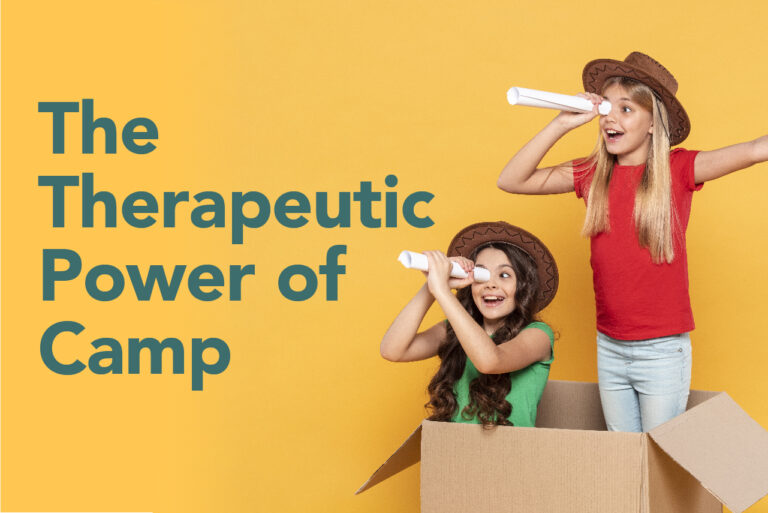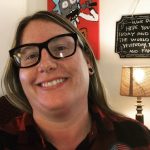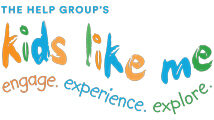
As we embark on the year anniversary of uncertainty, changes to our everyday lives and “social distancing” due to the global pandemic, the need for social connections is more apparent than ever. While this year at home has challenged us in many ways, it has also brought some unexpected benefits. As our children and teens struggle with not having the usual activities such as play dates, outings with friends or family, graduations or even prom, families are striving for some meaningful social connections and to avoid issues related to depression, anxiety or isolation. One reassuring thing we can provide, is the value and lasting connections developed through a camp experience, even when it’s virtual.
Even though camps may look a little different during Covid, the need is still the same. As someone who grew up attending day and sleep-away camps and now making a career out of operating camps, camp has become my whole world. The magic of camp is very real to many children. Camp allows for self-exploration, whether learning a new skill or trying something out of your comfort zone. The friendships and connections that children and teens make within a camp program are vital now more than ever since we all have been forced to “shrink our social bubble” due to the pandemic. Virtual camp options are often a good fit for children with specific needs, as you can find camps with activities that relate to your child’s interests and pair them with a similar group of children which otherwise may not exist in your area. And while Zoom Fatigue is a very valid concern, the need for social connectiveness seems to resonate with many families. , Virtual camps may be a good option as the campers can take frequent breaks, enjoy physical activities within the virtual setting and have the opportunity to meet other campers that share common interests.
Here are the core concepts that make camp so unique and special:
Connection
When a child or teen is able to participate in a camp program, they become part of that community and create connections with others that have similar interests. The friendships and bonds that campers create differs from those created at school. There becomes a sense of belonging that occurs between the campers. For families with a child with autism spectrum disorder to find others that have similar interests and preferences is a difficult task; a specialized camp allows for those types of connections to occur. For a child to understand there are other children like themselves is a power key to helping them develop self-confidence and a sense of belonging.
Acceptance
Many children and adolescents feel that they don’t belong or that they are “different.” Camp fosters acceptance and inclusion of these differences by allowing a safe space to express their fears without judgment or bullying/teasing. For example, if a child were to talk about their diagnosis at camp and the campers were compassionate and understanding that would help that child to see that acceptance is possible. Developmentally all children want to be accepted by their peers, camp can help facilitate that. Through camp activities and curriculum children’s awareness of others and everyone’s differences can be celebrated. Camp allows children to be their authentic self and shapes them into the adults they will become. The power of camp is real!
Mentoring
Campers experience a sense of mentoring while at camp even at a very young age. For example, a younger camper may have been there the week prior and can help the new camper follow the schedule or share some of their experiences to help mentor the other child. The maturity that is developed at camp through mentoring and helping others is truly amazing to witness and it happens so naturally. This opportunity of role modeling occurs uniquely at camp compared to other settings.
Problem Solving
Conflict resolution and being able to think outside the box are at the core of what camps strive to accomplish for campers. Teamwork, communication and boundary setting are essential pieces of most camps curriculum. To be able to compromise, working together and create something new are essential tools to enhancing problem solving skills. Many campers with autism spectrum disorder struggle with these complex concepts, but camp gives them the opportunity to practice in a safe and accepting environment. An example of this can be seen when campers work together on a project or skit for camp. They will have to listen to the ideas of others, compromise some their own ideas and work collaboratively with others to accomplish that specific project. This type of learning and being able to try new things are all part of the self-exploration which camp promotes.
This year, as aspects of our “old” lives begin to return, it is critical to create new opportunities for growth and healing from a year without social connections and feelings of isolation. We may need some refreshers on how to engage with others, thus the need for programs such as camps becomes more vital. Camp can help children and teens restore some of the missing pieces of everyday life. Having your child attend a camp this year may also help them return to the unstructured social environments such as the school setting, but getting in practice in a small, safe, supportive program.
The Kids Like Me camp programs encompasses all of the aspects that have been touched upon in this article. Our camps have been transformed to the virtual platform and we still are able to capture these incredible moments between campers daily. Our camp programs teach social skills, kindness and celebrate diversity. The parent of one of our campers said, “During camp his social skills and sense of self were enhanced which is normally a challenge for him. There was a beautiful moment where the campers had a natural unprompted dialogue sharing their diagnosis and differences. This was an emotional moment for me as a parent but was an empowering and inclusive moment for my son to hear other peers have challenges similar to his. This camp was more than just a camp for my son, it became his community.”
To learn more about Kids Like Me’s Virtual Spring Break or Summer Camp program, contact us!

Nicole Webb, LMFT
Kids Like Me Program Director
Nicole Web is Kids Like Me Program Director and is a registered Marriage and Family Therapist (MFT). She has worked with children extensively over the past fifteen years as a therapist, behaviorist, and camp director. Nicole received a Master of Science degree in Marriage and Family Therapy from the University of Southern California and a Bachelor of Arts degree in Child and Adolescent Development and Psychology from California State University, Northridge.
In 2010, Nicole began her work at The Help Group as the Program Director for Kids Like Me, working closely with children and teens with autism spectrum disorder and other special needs. Nicole’s dedication to promoting autism awareness throughout the community has prompted her to give a number of presentations at local universities and organizations. She has also spoken internationally on topics related to autism and treatment modalities.
